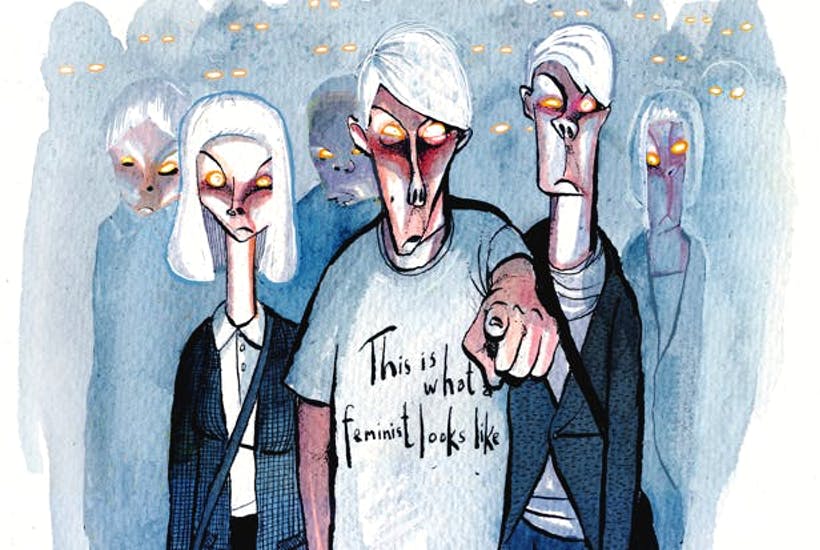When I first read about plans for a new academic periodical called The Journal of Controversial Ideas, I got the wrong end of the stick. Fantastic news, I thought, particularly when I saw the distinguished group of intellectuals behind it. They include Jeff McMahan, professor of moral philosophy at Oxford; Peter Singer, the well-known Australian philosopher; and Francesca Minerva, a bio-ethicist at the University of Ghent. An authoritative magazine bearing the imprimatur of these distinguished free-thinkers is a great way to persuade other, less celebrated academics to stick their heads above the parapet and publish essays that dissent from groupthink.
Then I spotted an important detail: all the material will be published pseudonymously. That’s right — the contributors won’t use their own names. Far from a cause for hope, this is confirmation of my worst fears. The Maoist intolerance of anyone who dares to challenge the ‘woke’ orthodoxy has reached such a pitch that the only way to persuade non-conforming intellectuals to contribute to public debate is to guarantee they won’t be identified.
When I described universities as ‘left-wing madrassas’ in a Sunday paper earlier this year, I was accused of being alarmist by various higher education ‘experts’, including some conservatives. Sam Gyimah, a higher education minister, told vice-chancellors that, ‘Our best universities are not ivory towers. Still less are they “left-wing madrassas”, as one controversialist chose to describe them.’
I wish I had been exaggerating, but when eminent academics are forced to go to these lengths to protect colleagues from the career-ending consequences of expressing heterodox views, even the most sanguine observer has to admit there’s a problem.
‘I think all of us will be very happy if and when the need for such a journal disappears, and the sooner the better,’ Professor McMahan told the BBC. ‘But right now in current conditions something like this is needed.’
McMahan was being interviewed for Monday’s Radio 4 documentary University Unchallenged, about the lack of viewpoint diversity in British higher education. Matthew Flinders, a politics professor, interviewed a cross-section of academics in the social sciences and humanities. They confirmed that there is a left-wing bias in their fields, but some queried whether that means other political views are suppressed. After all, hasn’t the academy always skewed left? Noah Carl, a research fellow at Cambridge who has studied this phenomenon, told Flinders that the imbalance has recently got a lot worse. Until about 15 years ago, left-of-centre academics outnumbered those on the right by two to one; at the last general election, it was more like seven to one.
Interestingly, Flinders had difficulty persuading any hard-left academics to talk to him and suspected an organised boycott — a rather self-defeating tactic if their object was to demonstrate how open-minded they are. However, he did manage to find one willing to go on the record: an historian at King’s College London called Jon Wilson. ‘Behind this issue there’s a right-wing agenda,’ Wilson said, explaining why his left-wing colleagues didn’t want to be interviewed. ‘What people who complain about the lack of viewpoint diversity mean is that their conservative views are no longer dominant.’
A tad implausible you might think, given that conservatives haven’t been dominant on campus for at least 75 years. But Flinders then revealed that Wilson was a leader of the outrage mob that went after Oxford historian Nigel Biggar last year for calling for a measured reappraisal of our colonial past. Any suggestion that the empire was not an unalloyed evil is heresy among ‘woke’ historians and Wilson helped to organise a letter-writing campaign that saw Biggar condemned by more than 170 other academics. Listening to Wilson deny that the left tries to stifle intellectual debate reminded me of a communist apologist from the Cold-War era claiming the Soviet Union was the most democratic country in the world.
Flinders concluded by saying that he found the idea of a new academic journal where dissenters like Nigel Biggar can publish articles under pseudonyms rather depressing, and it’s hard to disagree. Still, at least it will make it impossible to deny that free speech is under threat in Britain’s universities.







Comments